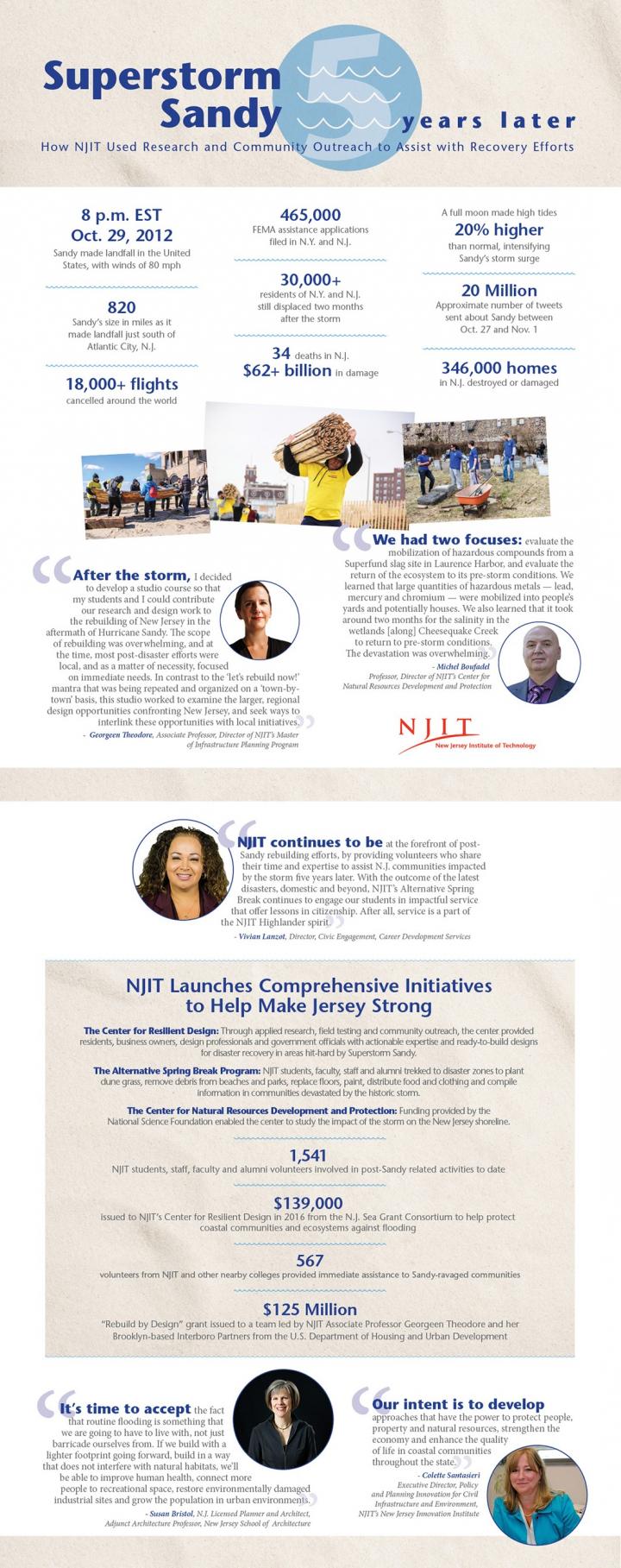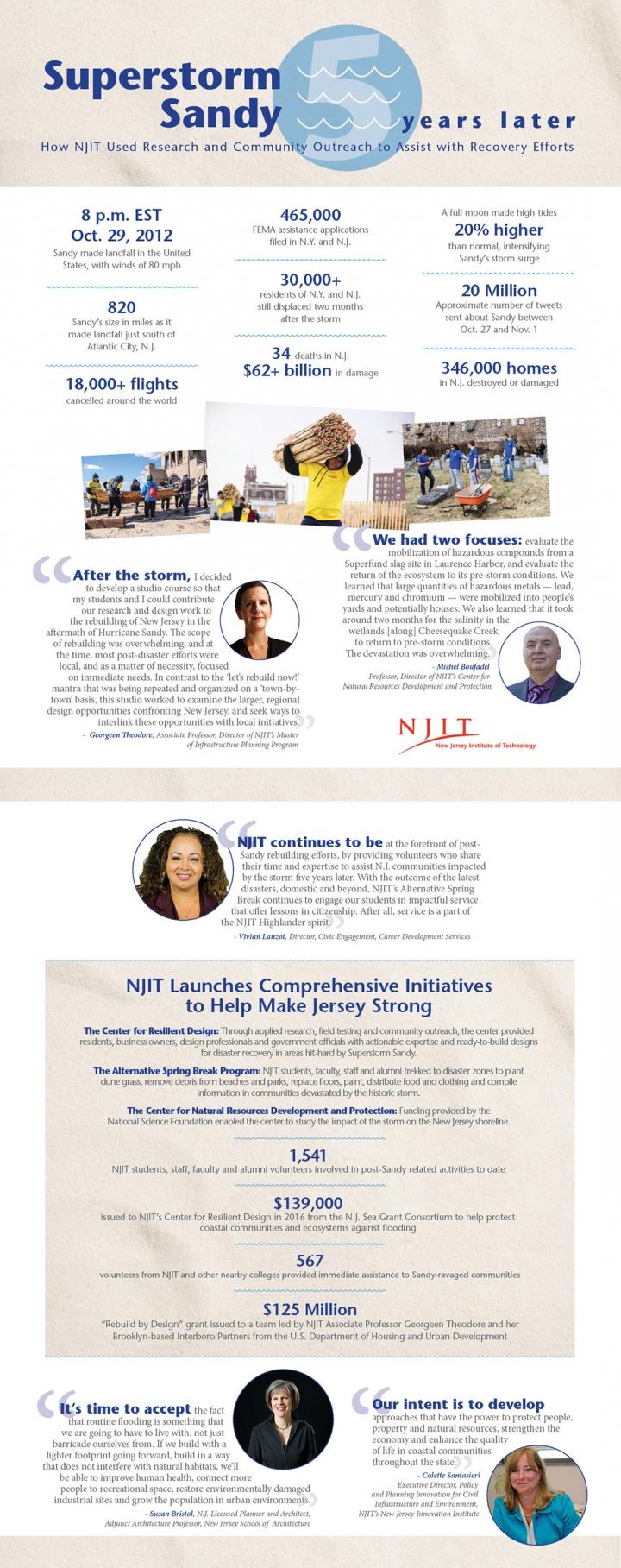
Credit: NJIT
Five years ago, Superstorm Sandy devastated the U.S. east coast, taking the lives of 34 New Jersey residents, destroying hundreds of thousands of homes and businesses, and causing over $62 billion in damage.
The NJIT community responded to the disaster with immediate assistance and farsighted planning for the future.
During the height of the storm, NJIT graduate students studying emergency management were embedded in Newark's Office of Emergency Management to help the city's administration respond to the disaster.
In the immediate aftermath of Sandy, NJIT students serving as emergency-management interns in the Business Emergency Operations Center, supported by the Federal Emergency Management Agency, worked to help ensure that donations which included food and clothing reached the Newark area's neediest residents.
Alternative Spring Break in the years following saw hundreds of students and other volunteers from NJIT assisting with the cleanup of debris, the renovation of homes and businesses, and the planting of protective dune grass on beaches in communities hard-hit by the storm. Lieutenant Governor Kim Guadagno expressed special appreciation on behalf of the state for these efforts in 2014.
Taking a longer and more comprehensive view of events such as Sandy, NJIT established the Center for Resilient Design, an architectural think tank dedicated to the rebuilding of storm-afflicted areas in sustainable ways that can withstand future natural disasters.
Through applied research, experiential learning and civic engagement, NJIT continues to be at the forefront of post-Sandy rebuilding efforts, addressing issues such as climate change and sea level rise to provide residents, business owners, design professionals and government officials with actionable 21st century, ready-to-build designs and expertise.
###
About NJIT
One of the nation's leading public technological universities, New Jersey Institute of Technology (NJIT) is a top-tier research university that prepares students to become leaders in the technology-dependent economy of the 21st century. NJIT's multidisciplinary curriculum and computing-intensive approach to education provide technological proficiency, business acumen and leadership skills. With an enrollment of 11,400 graduate and undergraduate students, NJIT offers small-campus intimacy with the resources of a major public research university. NJIT is a global leader in such fields as solar research, nanotechnology, resilient design, tissue engineering, and cybersecurity, in addition to others. NJIT is among the top U.S. polytechnic public universities in research expenditures, exceeding $130 million, and is among the top 1 percent of public colleges and universities in return on educational investment, according to PayScale.com. NJIT has a $1.74 billion annual economic impact on the State of New Jersey.
Media Contact
Tanya Klein
[email protected]
973-596-3433
@njit
http://www.njit.edu





